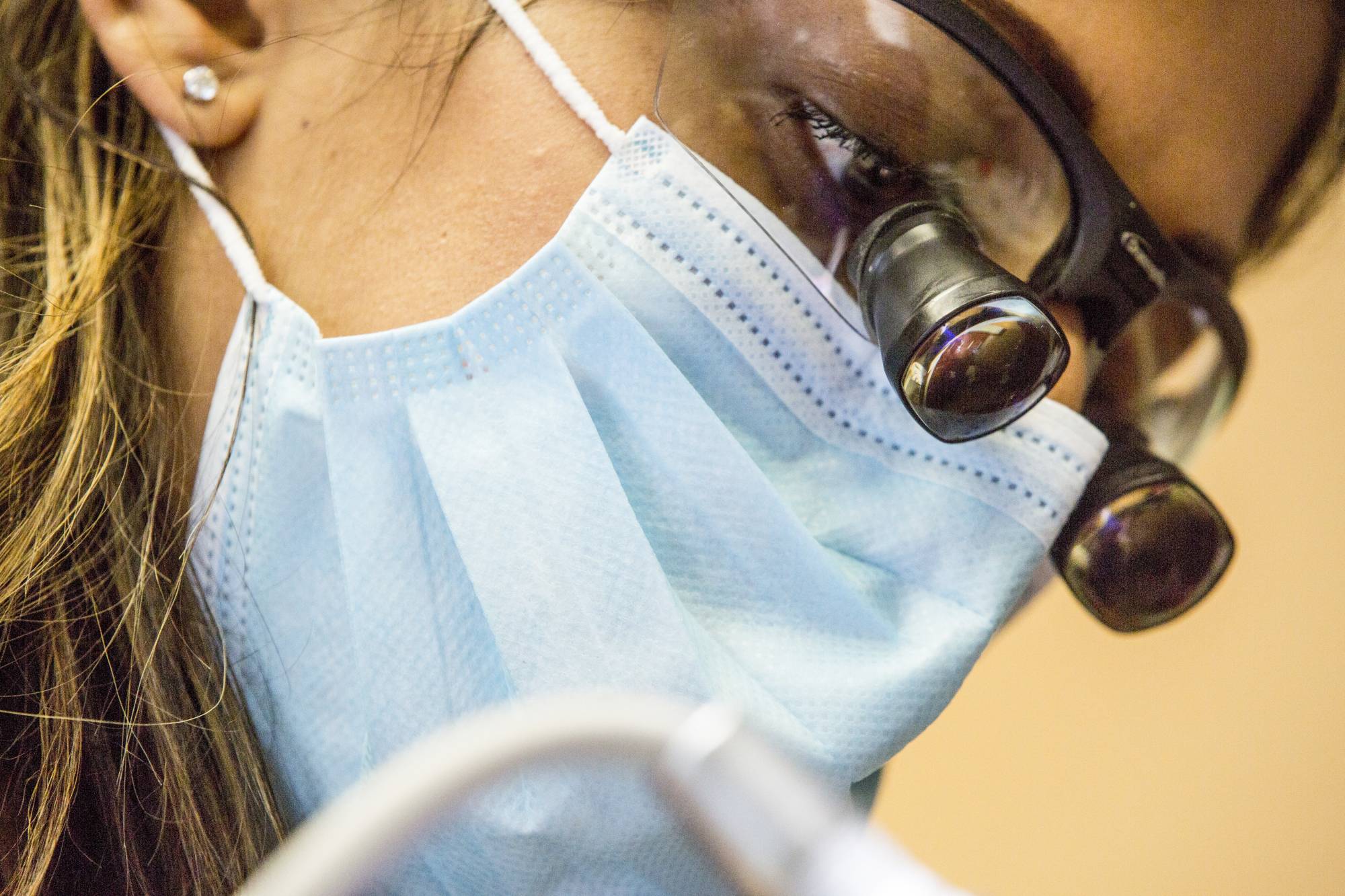A Medicare idea you can sink your teeth into
Retirement can be a lot less fun if your teeth fall out and you can't bite into an apple.
I got a gold crown on a molar a couple of years ago. I joked to the dentist it cost more than a new Ford I once bought. He’d insisted on using a “noble” metal because gold crowns last longer than other materials.
I thought of Betty White. 20-some years ago we took the kids and our adopted greyhound to a greyhound weekend at Dewey Beach, Delaware. (Our dog hated the water, we found out.) Actress Betty White spoke at a breakfast. She remarked, “At my age, you don’t get puppies.” That was two dog lifetimes ago. Yet she’s still pluggin’ along at 99. So, yeah, get the noble metal crown.
Either way, dentistry and dentists are expensive. Yet regular dental care is crucial to good teeth. And good teeth are crucial to good health. Don’t take my word for it. Here’s what two dentists — one from Harvard Medical School and the other from Brigham and Women’s Hospital in Boston — wrote this week in the New England Journal of Medicine: “Untreated dental disease can lead to endocarditis, brain abscesses, and mediastinitis. The local and systemic inflammation driven by common periodontal infections has been associated with worsening diabetes and increased cardiovascular disease risk.” I don’t know what mediastinitis is, but I don’t like the sound of it.
Drs. Lisa Simon and Willian Giannobile also write that millions of emergency room visits each year concern dental issues. And that older adults with untreated dental conditions don’t eat well and have higher rates of depression.
I bring this all up now because of the feverish pitch of debate in Congress over the future of Medicare, the government’s biggest and most expensive program. And because so many federal employees thinking about retiring will face the choice of whether to stick with Federal Employee Health Benefits Program (FEHB) Program plans or one of the Medicare Advantage plans. The Federal Employees Dental and Vision Insurance Program (FEDVIP) plans are also widely available to retirees, but those’ll cost you. OPM has a pretty good Q&A page on these question.
Medicare doesn’t cover dental costs, unless the dental services are directly related to a hospitalization covered under Part A. In their article, Simon and Giannobile argue in favor of Medicare dental coverage. Current bills would do just that — H.R. 502 in the House and S.97 in the Senate. Sen. Ben Cardin(D-Md.) sponsored the latter bill. Neither one has had much action. But the multi-trillion-dollar bill the administration wants to pass by reconciliation includes funding.
I confess to not knowing this was even a debate until reading the medical journal’s article. The idea of a universal Medicare dental benefit lacks universal support even within the world of dentists, according to Simon and Giannobile. They write that the American Dental Association only supports the benefit if it’s means-restricted and comes with its own Part T. I guess “T” stands for for tooth. Simon and Giannobile say this would ensure most dentists opt out of accepting Medicare — a situation they say already exists for Medicaid.
I checked the ADA site, and there’s this statement: “Tell our congressional representatives to target a Medicare benefit to low-income seniors.” And this: “Resolved, that funds dedicated to the program should be used to provide medical and dental care to children with family income less than or equal to 200 percent of the federal poverty level before any expansion to children in families above that level…”
The two dentist-authors are strong proponents of a Medicare dental benefit available to all enrollees. They assert, “Medicare’s evolution has had profound effects on not only the health of Medicare beneficiaries, but of all Americans. A Medicare dental benefit could transform dental care delivery to be more equitable, outcomes-driven, and integrated with the rest of the health care system, but only if dentists are compelled to take part.”
That’s them. In this space, I don’t advocate for one public policy or another. No one would argue other than that people should have access to good dental care for a variety of compelling reasons. To every desired outcome, many routes exist. The congressional proposals at least deserve real debate and consideration, if only because taking care of the chompers is taking care of the whole person.
Nearly Useless Factoid
By Alazar Moges
A man named Stephen Clarke holds the record for fastest time to carve a pumpkin at. 16.47 seconds. He completed the feat at PIX11 Morning News in New York on Halloween day 2013. The jack-o’-lantern was required to have a nose, mouth and ears.
Source: Guinness World Records
Copyright © 2025 Federal News Network. All rights reserved. This website is not intended for users located within the European Economic Area.
Tom Temin is host of the Federal Drive and has been providing insight on federal technology and management issues for more than 30 years.
Follow @tteminWFED





